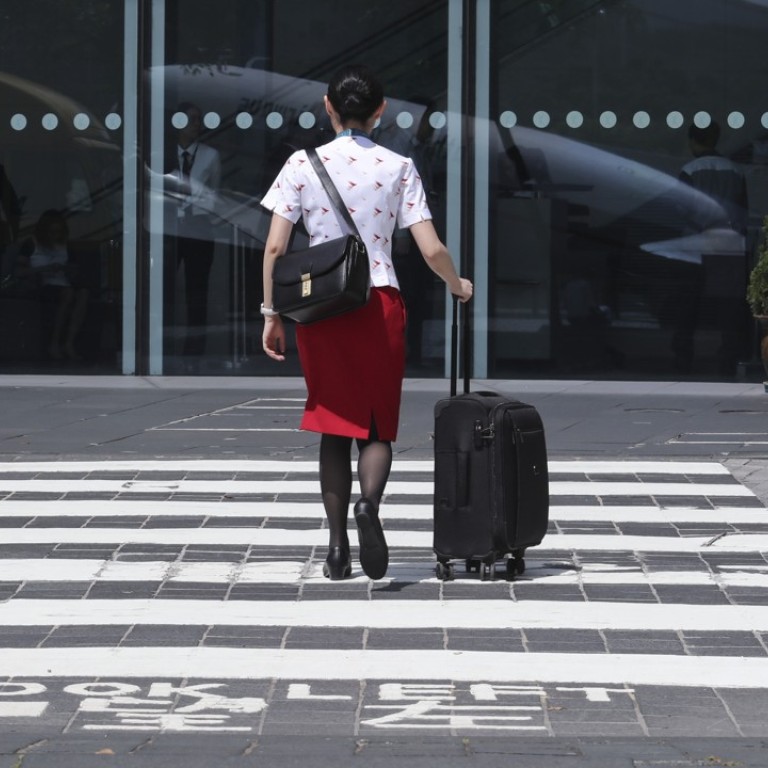
Cathay Pacific cabin crew demand 5.5 per cent pay rise, warning carrier not to use data breach crisis as ‘excuse’
- 7,200-strong union says staff took lower increments in past year to help struggling company get by
- Vice-chairwoman says she ‘cannot imagine’ how members will react if airline uses cyberattack to deflect demands
The airline’s Flight Attendants Union is heading into year-end negotiations with management just as Hong Kong’s flag carrier is embroiled in a massive cyberattack incident affecting 9.4 million passengers.
“Cathay Pacific tries their very best to make use of all sorts of reasons to lower the percentage [of pay increase], but we based our rise on what they tell stakeholders, and the forecast [next year] should be very good,” union vice-chairwoman Dora Lai Yuk-sim said.
Cathay Pacific cyberattack far worse than thought
She added: “We don’t think there is an excuse for them to, all of a sudden after the data leakage, say business will go down.”
Cabin crew this year received a below-inflation 1 per cent rise, half of what non-managerial staff received in 2017. They are now seeking 5.5 per cent on the basis of helping the company recover lost earnings by previously taking a lower raise.
Cathay Pacific tries their very best to make use of all sorts of reasons to lower the percentage [of pay increase]
The city’s inflation rate stood at 2.7 per cent in September.
Cathay has around 10,000 cabin crew, with 7,200 as union members.
A decision by the airline on the wage demand is expected in two weeks after negotiations formally start on November 26. A Cathay spokeswoman said: “Cathay Pacific has scheduled meetings with the cabin crew union to discuss year-end arrangements and other matters of mutual interest.
“We always maintain communication with the cabin crew community and look forward to work in a collaborative manner in the upcoming discussion.”
The union’s Lai said: “There is no reason for them to say we are not going in the right direction, because the restructuring aims to improve revenue and productivity, and we are actually on track and we see [signs of this].”
In a thinly-veiled warning outlining the union’s bottom line, Lai added: “If they put [the breach as an excuse] on the table, I cannot imagine how our members would react. We cannot accept it.”
The union disclosed non-pay concerns including over a new working schedule that would be computerised. Recent trials have thrown up more “brutal” trips with a 24-hour rest period in between long-haul flights instead of the required two or three days.
As it happened: ‘pathetic’ Cathay slammed by Hong Kong lawmakers
Staff are also seeking to add an extra flight attendant to serve passengers in business class under a new dining service on long-haul flights.
With such calls from within, the pressure is mounting on embattled Cathay as it faces high costs and competitors undercutting ticket prices, while in the midst of a three-year company restructuring. The airline’s management also has its hands full answering to lawmakers in the aftermath of the data breach, with top brass apologising over “the most serious” crisis in its history.
Meanwhile, oil prices have become a larger concern for airlines going into next year as volatility in valuations has proved challenging for carriers to control cost or raise money from ticket prices.
The Association of Asia-Pacific Airlines flagged rising oil prices as a concern for 2019 but was more relaxed on concerns that it would dampen travel demand should airlines raise fares to cover costs.


